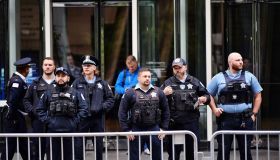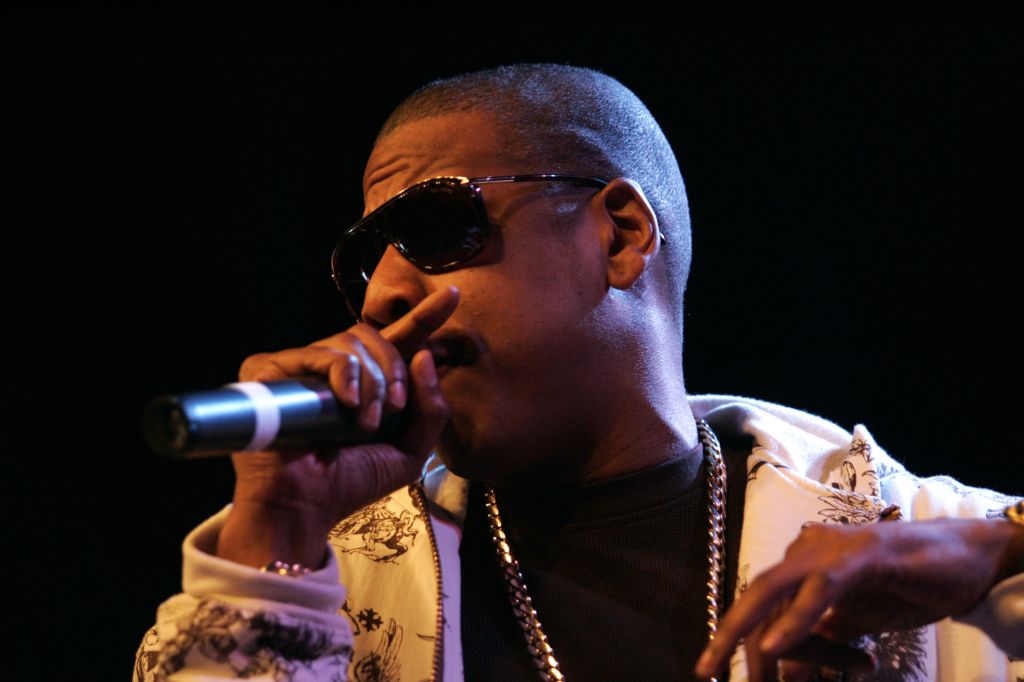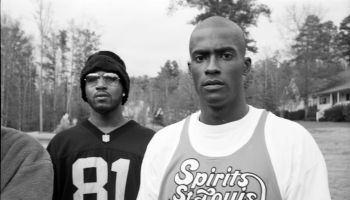Black artists often find themselves fighting for a seat at the table when it comes to having their work featured in exhibitions at renowned art institutions. According to a study conducted by Art News, less than three percent of museum acquisitions over the past ten years have been pieces created by African American artists. Despite the exclusion from mainstream galleries and museums, they are forging paths of their own, carving out spaces where they can share their artistry with the world, and using their work as a means for social and political activism. Bronx-bred visual artist and actor Tyson Hall is one of the individuals a part of a modern-day renaissance of Black artists who are reclaiming their space in the art industry and utilizing their work to uplift and empower their communities.
Hall says his passion for activism runs deep. He was born in Washington Heights, New York across the street from the Audubon Ballroom where civil rights leader Malcolm X was murdered. The activist’s impact would later influence pieces of Hall’s work that echoed his messages of Black unity and the power of Black economics; pieces that were created decades after Malcolm X’s untimely death but are still relevant with today’s social and political climate. Hall—who came of age in the Bronx during the birth of hip-hop—has also pulled inspiration from the music genre throughout his career. His first art form was graffiti and then he decided to transition his canvases from MTA trains to sketchbooks. Hall was inspired by the political messages behind the music from groups like Public Enemy and how music mogul Sean Combs remixed soulful tracks from legends like James Brown to introduce that era of music to a new generation. He says incorporating the teachings of Black leaders from the past in his artwork to uplift and inspire the next generation of creatives is something that he strives to do through his work. It was the 1996 film Basquiat that drew him closer to the idea of using art as a form of activism.
“Throughout my career, I’ve taken a lot of what our ancestors have said and done and remixed those voices through visual artistic expression,” Hall told NewsOne. “I did a series titled Buy Black where one piece, in particular, had four panels that read “Buy Black” and as you go down each panel it starts to disseminate. It was representative of the short life span of a dollar within the Black community and how we should do more to support each other.”
Despite the powerful messages displayed through his art, Hall says one of the most challenging parts of being a Black artist is getting his work placed in galleries and museums. Instead of waiting for these art institutions to give him an opportunity, Hall has developed his own and has created spaces for his work. His pieces are on the walls at Harlem restaurants including Angel of Harlem and Corner Social and he has donated his work for auction to charities that include The Jackie Robinson Foundation, Abyssinian Baptist Church, the MOCADA Museum, and the ARRC.
Going beyond the canvas, Hall uses acting as a form of artistry. His acting credits include Paid in Full, American Gangster, and Godfather of Harlem. He does motivational speaking as an avenue to empower inner-city children to use art as a means for change. He’s also developing a platform called SOL (Solidifying Our Legacy) Media Plus which is dedicated to educating, empowering, and connecting the creative community. As far as his advice for emerging Black artists, he says to “lock in and identify with your purpose as an artist to push forward.”
SEE ALSO:
Issa Rae Invests In Black Woman-Led Tech Startup
Diddy Donates $1M To Fund New Bronx Charter School
Bronx-Bred Creative Tyson Hall Uses Art As A Means For Activism was originally published on newsone.com


























